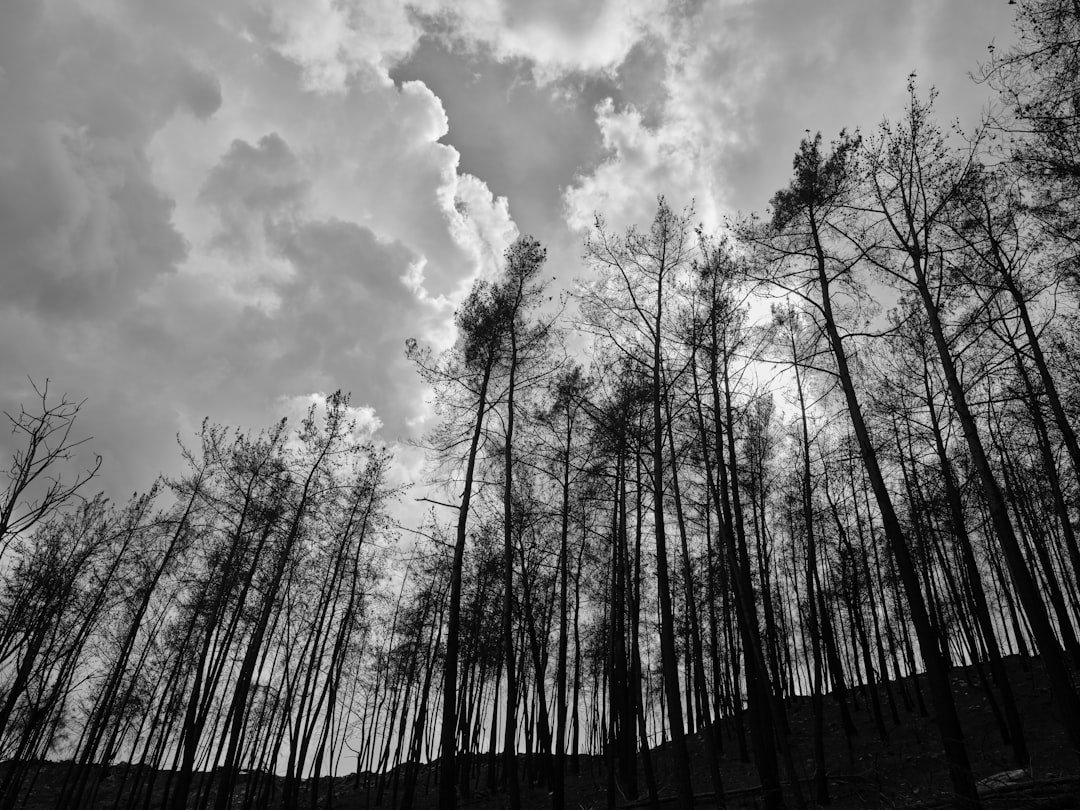Deforestation has become one of the most urgent environmental problems of our time, with far-reaching effects that go beyond ecological degradation. This includes the impact on indigenous communities. The loss of these essential ecosystems disproportionately affects indigenous communities, who have historically depended on forests for their spiritual beliefs, cultural practices, and means of subsistence. In addition to endangering their natural surroundings, the loss of forests also threatens their social structures and cultural identities.
Key Takeaways
- Deforestation has a significant impact on indigenous communities, leading to displacement and loss of livelihoods.
- Forced relocation due to deforestation results in the loss of cultural identity and traditional ways of life for indigenous communities.
- Displacement from deforestation leads to health and social consequences, including increased poverty and limited access to healthcare and education.
- Displaced communities often face economic hardship and poverty, as they struggle to find new sources of income and stability.
- Government policies often lack support for displaced people, exacerbating the challenges they face in the wake of deforestation.
Many Indigenous peoples view the forest as an essential component of their identity, history, & way of life rather than just a resource. Significant biodiversity loss has resulted from the encroachment of logging, agriculture, and urbanization into forested areas. This has an impact on the centuries-old traditional knowledge systems that Indigenous communities have developed. There are several places in the world where Indigenous communities are impacted by deforestation. The Yanomami people, for example, have seen their ancestral lands in the Amazon rainforest destroyed by illicit mining and logging operations.
Their customs of hunting and gathering are disturbed, & they become more vulnerable to diseases introduced by outsiders. Similar to this, the Dayak people of Borneo in Southeast Asia are even more threatened by the encroachment of palm oil plantations, which destroy their forests and drive out wildlife. Because many Indigenous communities rely on the forest for nutritional resources & medicinal plants, food security and health are directly impacted by biodiversity loss and ecosystem degradation. One tragic outcome of deforestation is the forced relocation of Indigenous communities, which frequently results in a significant loss of cultural identity.
Communities that are physically uprooted from their ancestral lands also lose their ties to their history & customs. Rituals, storytelling, and the strengthening of community ties are all carried out on the land, which is infused with cultural significance. Many times, relocation causes these social structures to break apart, causing people to become disconnected from long-standing cultural customs. Resettlement programs frequently overlook the special needs and rights of Indigenous peoples.
| Country | Number of People Displaced | Year |
|---|---|---|
| Brazil | 1,000,000 | 2019 |
| Indonesia | 600,000 | 2018 |
| Malaysia | 200,000 | 2020 |
For instance, many Indigenous groups, including the Kayapo and Xingu peoples, have been displaced in Brazil as a result of the building of massive dams. These communities are frequently moved to places devoid of the resources they need to survive, like clean water and arable land. Their traditional ways of life might not be supported by the new surroundings, which could result in a loss of language, customs, and communal cohesiveness.
Future generations may be negatively impacted for some time by this cultural deterioration since children become estranged from their roots & sense of self. The social and health effects of being uprooted because of deforestation are extensive and complex. Indigenous communities that are displaced frequently face greater health risks as they adjust to new surroundings that might not offer enough resources for their welfare. The strain of moving can cause mental health problems like depression and anxiety, which are made worse by the loss of support systems and social networks.
Moreover, nutritional deficiencies and associated health issues may arise from the disruption of traditional diets. Social repercussions can appear in a variety of ways in addition to physical health difficulties. Communities that experience displacement may see a rise in crime and violence as social cohesiveness disintegrates.
In areas where Indigenous peoples have been displaced by force into urban areas, for example, substance abuse and domestic violence are frequently on the rise as people try to adjust to their new circumstances. Insufficient access to healthcare services exacerbates these problems since displaced people might not have access to proper medical treatment or support networks to meet their needs. Displaced Indigenous communities frequently experience economic hardship as a direct result of deforestation. Communities being uprooted from their lands frequently makes it impossible for traditional livelihoods that depended on forest resources, such as hunting, fishing, and gathering.
The shift to new economic pursuits is difficult; many displaced people do not have the resources or abilities needed to succeed in new settings. These populations’ rates of poverty may rise as a result of this economic disruption. For instance, Pygmy communities in the Democratic Republic of the Congo have been displaced due to deforestation caused by mining and logging, as they have historically depended on the forest for their livelihood.
They frequently become caught in poverty cycles with little access to work and educational opportunities as a result of being evicted to cities or less fertile areas. These communities are already economically marginalized, & their poverty is further exacerbated by systemic discrimination and a failure to recognize their rights. Government policies frequently fall short in meeting the needs of Indigenous communities that have been displaced due to deforestation. Economic development is frequently given precedence over the rights and welfare of Indigenous peoples in policymaking. This may show up as insufficient support for resettlement initiatives that consider community needs & cultural customs or insufficient legal protections for land rights.
Sensations of marginalization & disenfranchisement are made worse by the absence of substantive consultation with Indigenous groups during decision-making processes. Government policies usually prioritize corporate interests over those of Indigenous communities in nations like Indonesia, where deforestation is widespread as a result of the expansion of palm oil. Many governments still disregard their international commitments to protect Indigenous rights in favor of immediate financial gains.
In addition to sustaining poverty cycles, this disregard thwarts initiatives for sustainable development that could help the environment & Indigenous peoples. Indigenous communities, whose livelihoods depend on healthy ecosystems, are severely impacted by the environmental degradation brought on by deforestation. Wildlife, clean water, and medicinal plants are among the essential resources that are becoming more and more limited as forests are cut down for urbanization or agriculture. In addition to endangering food security, this loss upends cultural ecological knowledge that has been transmitted through the ages. Deforestation has caused major changes in local ecosystems and climates in places like the Amazon basin.
It becomes more challenging for Indigenous farmers to grow crops sustainably when trees are destroyed because it alters rainfall patterns and causes soil erosion. Hunting becomes less feasible as wildlife habitats are destroyed, putting these communities’ food sources even more at risk. The necessity for conservation initiatives that put ecological health and human rights first is highlighted by the interdependence of Indigenous peoples & their environments.
A lot of Indigenous communities have come together through advocacy & activism to defend their rights and keep their cultures alive in response to the problems caused by deforestation and displacement. Across the world, grassroots movements have arisen to support Indigenous peoples’ demands for recognition of their land rights and to fight against environmental degradation. These movements frequently use traditional knowledge systems to advance ecologically sound and sustainable practices.
Groups like Survival International put forth endless effort to elevate the voices of Indigenous peoples who are being uprooted by deforestation. They raise awareness about the significance of defending Indigenous rights as part of larger environmental conservation initiatives and push for changes to national and international policies. Also, partnerships between environmental NGOs and Indigenous groups have been successful in developing strategies that tackle social justice & ecological sustainability. A multifaceted strategy that puts the rights of Indigenous communities and environmental sustainability first is needed to combat deforestation.
The acknowledgement and enforcement of Indigenous peoples’ land rights, which would enable them to administer their lands in accordance with customs that support biodiversity preservation, is one promising solution. Research has demonstrated that, in comparison to areas controlled by corporations, deforestation rates are frequently lower in areas managed by Indigenous communities. Also, encouraging agroforestry techniques can ensure food security for displaced communities while offering a sustainable substitute for traditional agriculture.
By including trees in agricultural systems, these methods improve biodiversity, improve soil health, and generate extra revenue from non-timber forest products. Programs that teach Indigenous youth sustainable land management techniques can help them become more resilient to displacement while protecting their cultural heritage. To sum up, tackling the effects of deforestation on Indigenous communities requires a thorough comprehension of the relationship between environmental health and human rights. Through prioritizing sustainable practices that honor Indigenous knowledge systems and promoting legislative changes that uphold their rights, we can strive toward a future in which forests and people coexist peacefully.



